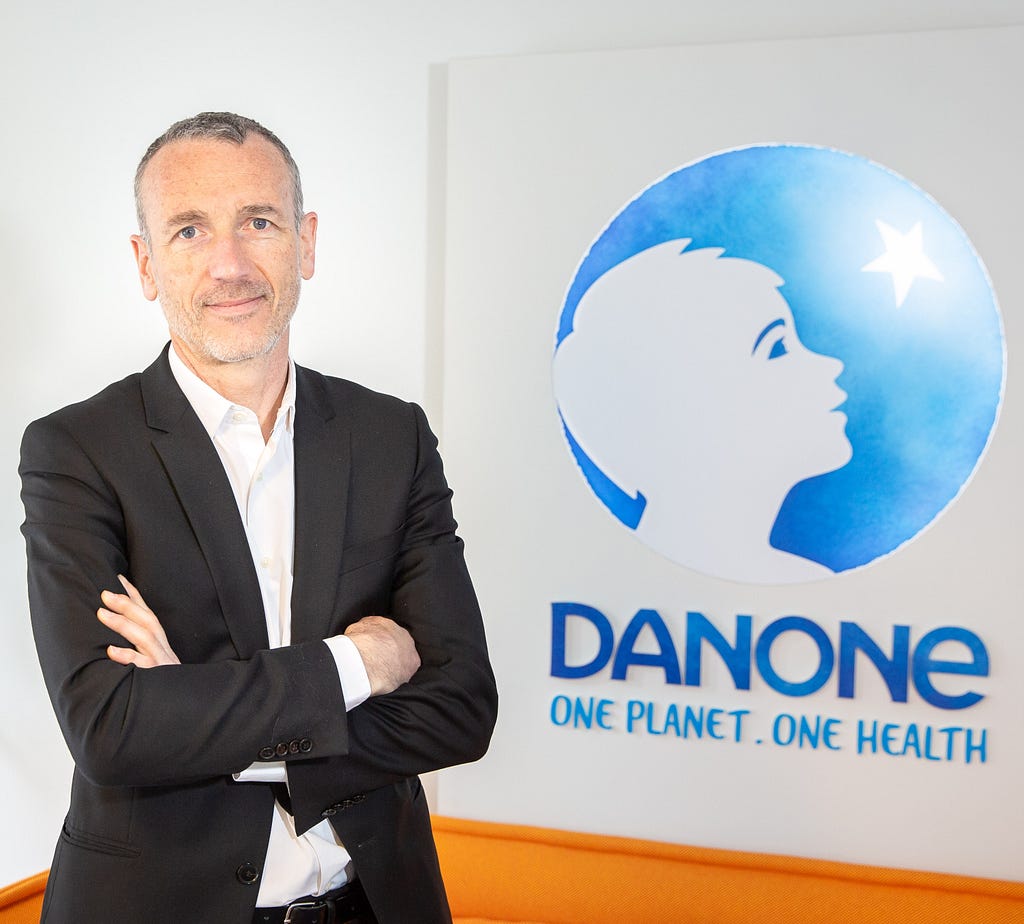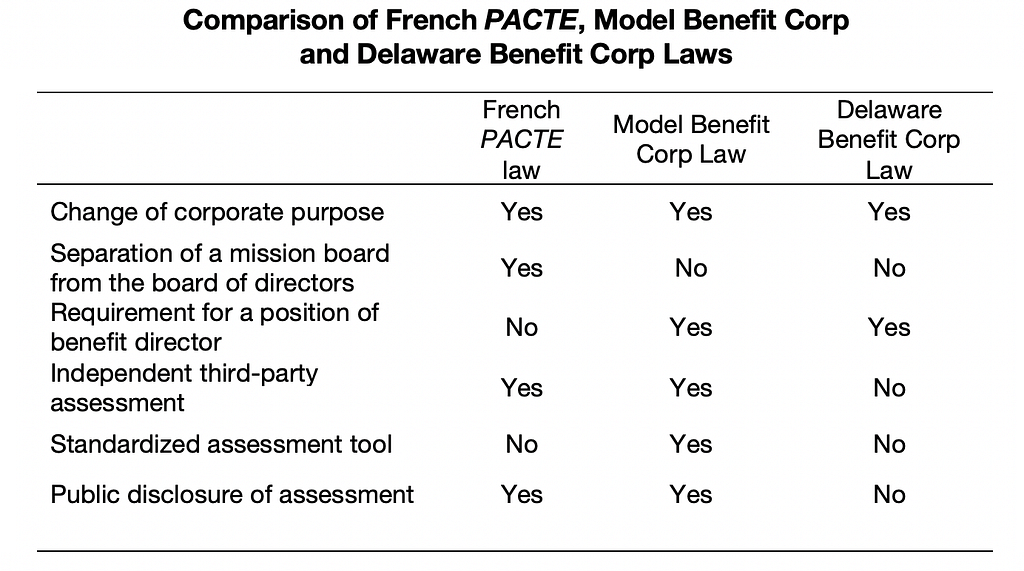How a New French Law and the COVID-19 Pandemic Reinforced Its Stakeholder-Minded Business

With momentum from a newly approved French law, the multinational food company Danone is taking meaningful steps toward becoming the first global Certified B Corporation — and solidifying its nearly 50-year commitment to a business model that incorporates social and environmental principles.
In officially gaining approval at its June 26 Annual General Meeting to adopt the Entreprise à Mission model created in 2019 by French legislation known as the PACTE law, Danone will commit to go beyond the traditional focus on short-term profit maximization to include other stakeholders such as workers, community, environment, and customers.

“For half a century we’ve been working on this assumption of how we should be doing business,” says Danone Chairman and CEO Emmanuel Faber. “It could not be timelier and more meaningful, as employees, consumers, customers, partners, governments and shareholders now see the critical importance of a balanced multi-stakeholder approach to value creation and sharing.”
To learn more about the significance of the French law in the global B Corp movement and the certification process ahead for Danone, I spoke with Faber as part of the research for my forthcoming book, Better Business: How the B Corp Movement is Remaking Capitalism. He further noted that the COVID-19 pandemic has confirmed the importance of the corporation’s purpose-driven mission.
Charting a Path Through Change
While the COVID-19 pandemic disrupted global markets and company operations around the world, Danone turned to a stakeholder-driven approach in adapting its business practices. It has maintained its daily food supply to customers and continued to support its communities through financial and product donations.
Behind the scenes, Danone acted quickly to ensure the holistic safety of its workers, Faber says. “We started from a very basic point, which was that we couldn’t have an operation without our people feeling and actually being safe from a sanitary standpoint,” he says. “We started work-from-home procedures where possible before governments declared stay-at-home orders.”
To extend that feeling of safety on a mental level, Danone guaranteed income for all workers worldwide and secured employment contracts through June 30.
“We believe that the business relies on the engagement of our people, and our ability to create value and to share value relies on their engagement,” Faber says. “That engagement could be seriously damaged if people didn’t feel safe in their jobs, didn’t feel good if they need to take care of their children or their parents, or any personal situations that have been unpredictable during these last few months for everyone.”
The pandemic also has accelerated Danone’s timeline for global B Corp certification, spurring the company to move up the goal year to 2025 from 2030.
“The decision was certainly accelerated by the COVID crisis because we saw, as a board, that the stakeholders’ economy was there,” Faber says. “We wanted to embrace it, because we believe a stakeholder business approach is going to stay in a COVID world.”
Staying Flexible to Find Solutions
The new law in France serves as a framework to accelerate the global B Corp certification process, Faber says, noting that the corporation faces some regulatory challenges that will require at-times creative solutions.
That’s because benefit corporation laws vary by nation and state within the U.S. Currently 36 U.S. states and Washington, D.C., have enacted benefit corporation law. Globally, Italy became the first country in the world to pass this legal status in 2015, followed by Colombia, Ecuador and British Columbia. Other countries working on similar legislation include Canada, Australia, Argentina, Chile, UK, Brazil, Portugal and Uruguay. (See “What’s the Difference?” below to compare the PACTE law to the U.S. benefit corporation laws.)
“There are new challenges, opportunities, and angles that we haven’t seen yet, or that the B Corp people haven’t seen yet, because we’re by far the largest organization that they are in the process of certifying,” Faber says. “We want to stay flexible and find pragmatic solutions.”
In its initial steps to formalize a stakeholder-based legal structure, Danone’s North American subsidiary registered as a Delaware benefit corporation in 2017 and gained certification as the largest B Corp a year later. About 30% of current global sales come from Danone subsidiaries that already have B Corp certification, Faber says, providing a foundation for other brands under its umbrella to establish additional practices and policies with stakeholders in mind.
“At the company level, it’s very important for us to continue to build the business case for B Corp certification,” Faber says.
What’s the Difference?
The table below compares the French PACTE law, Delaware benefit corporation law, and the model benefit corporation law that has been passed by 23 states by the end of 2018. All three legal forms have encouraged a shift of corporate purpose away from purely profit-maximizing objectives yet have differing mechanisms of governance and accountability.

- While the French law has a separate mission board that monitors its mission execution, benefit corporation laws have a requirement for a position of benefit director for this purpose.
- Both the model benefit corporation law and the French PACTE law require the assessment of the company’s activities to be undertaken by a third party while the Delaware benefit corporation law does not.
- While the model benefit corporation law has implemented a standardized evaluation tool (the B Impact Assessment), neither Delaware benefit corporation law nor the French PACTE law names a specific third-party standard.
- The Delaware benefit corporation law does not require the company’s benefit report to be public while both the model benefit corporation law and the French PACTE law make it mandatory.
B the Change gathers and shares the voices from within the movement of people using business as a force for good and the community of Certified B Corporations. The opinions expressed do not necessarily reflect those of the nonprofit B Lab.

Danone Sees Long-Term Value of Becoming a Global Benefit Corporation was originally published in B The Change on Medium, where people are continuing the conversation by highlighting and responding to this story.